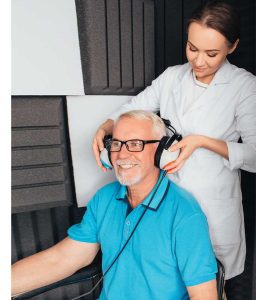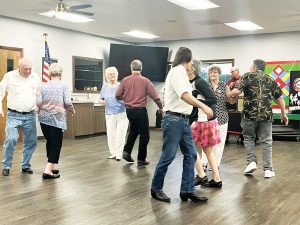By Dr. Kuljit Kapur
As a Hospice and Palliative Care physician, many people have asked me if providing end-of-life care, day in and day out, is excruciatingly sad. Do I come home and cry each day from seeing death? “Quite the opposite,” I respond. “End-of-life care is highly satisfying and morally rewarding work!”
End-of-life specialists compassionately gear patients with terminal diagnoses toward their passions, legacy, and unique meaning here on this earth. We medically manage symptoms based on their goals—establishing a unique plan of care with the patient and their family. We accomplish this plan of care with a community of experts in end-of-life medical management, spirituality, and psychosocial work. We must demystify misconceptions about hospice. Patients do not always die very soon, we do not medicate them to death (that is against the law), all meds are not taken away, and you can still see your doctors! We educate and hold patients’ hands when they are most vulnerable. We use the lowest possible efficacious doses of medicine to relieve symptoms like pain, anxiety, shortness of breath, or swelling. The focus is life, “the how good as opposed to the how long” in our work. Patients who come onto hospice at the right time may live longer because we often see in end-of-life care that “less can be more.” The mind, body, and spirit are focuses of hospice. As we say at Transitions, “It’s about living.”
The relationships we develop with our patients allow us to walk the path of suffering with them, which was my mission from the beginning, as written in my medical school personal statement in 2002. Families come to us for education, someone to make it okay or to guide them when faced with complex difficult decisions, such as taking a loved one off a ventilator or stopping IV antibiotics. This element of healthcare provides a window to deliver quality care at such a delicate and crucial time.
I will never forget the breast cancer patient who had an aggressive cancer ravaging her arm with tumor burden and infection. She had such a sense of humor, knowing that she could not go to her trailer home this summer because she was too weak. She reset her expectations of herself and agreed her goal was proper pain management, even if it meant some sedation from medication. I always remember her because she had the best attitude while her arm was almost falling off from a pathologic fracture. I learned that day that life is about attitude, no matter what is happening. She was so brave in the face of adversity, keeping her spirit strong and her smile shining until the end. Her hospice experience allowed her dignity and comfort until her death. Practicing hospice has been a teacher to me. I have learned some of life’s greatest wisdom by observing this type of bravery.
Recently, the young wife of a head and neck cancer patient I saw at Transitions did not understand from a spiritual perspective why we were not recommending IV fluids in her husband’s head and neck cancer. I was able to sit down with her, over some ginger tea, and explain his cancer and how IV fluids could detract from comfort now since his lungs were fluid overloaded. She shared her Hindu spirituality with me and stated that if only she had done more reiki and if he had more love, this would not have happened. She relayed seven years of anticipatory grief that day with me. Slowly, I allowed her to speak and guided her with questions and gently educated her on how we could accomplish her goal, but differently than she thought, medically. We spoke about self care, boundaries, spirituality, and how she would be the lead of the home after he was gone. She became receptive after several physicians tried to
talk to her in the hospital. With no agenda, I just met her where she was and she called me the next day to transition him to hospice. She understood and trusted that their goals were my goals. I even added medications, in fact, that afforded him a comfortable death. To her, this meant if he went in peace, his next journey would be of peace.
A patient of mine from 2013, who was a writer, Madeline L’Engle, wrote “until my journey led me to hospice, I didn’t understand how valuable they are. I misunderstood what they did and when I mistakenly thought that they were called end of life and didn’t know about the quality of life that is given to the patient and support for the family much earlier than that! I had a team consisting of a specialized team of doctors, nurses, and a chaplain who truly made my situation ‘quality!’ They are people who not only care about me and my family’s needs, but share themselves. They are a community of care. The ‘quality of life’ is not only about medical solutions to situations that the disease causes, but planners about what to do when this happens and we do this when this no longer works. It is about keeping me comfortable and doing what I am able, as long as I can. They are walking with me and my family and that is a tremendous gift, to know that you are not alone! Help me spread the word about hospice, for life is precious!”
Hospice is a misnomer, a gift with a bad wrapping job, because it is so often misconstrued. When we finally understand that it’s so much more than death, but in fact about ensuring that patients live the type of life they want, for the rest of the time they have on this earth, we begin to realize what hospice really is—it’s about living.
To learn more about Transitions or to schedule a meeting with a Regional Hospice Coordinator, visit www.transitionshospice.com or call 877.726.6494.
 Dr. Kuljit Kapur graduated from Benedictine University in 2002 on a full ride academic scholarship. She was the valedictorian of her high school, LaSalle Peru Township High School, graduating in 1998. She then attended medical school at Chicago College of Osteopathic Medicine, graduating in 2006. Her osteopathic medical training and philosophy has guided her in providing integrative, progressive, and quality medical care in the Chicagoland area for over 14 years. She became board certified in Internal Medicine in 2010 and moved forward in 2012 to complete her palliative and hospice fellowship at the Rush University Medical Center/Cook County/Midwest hospice program. She started her career as a geriatric subacute rehab and long-term care physician for Dreyer Medical Clinic, now Advocate Aurora Healthcare. She did palliative care consults in all Aurora/Naperville nursing homes and had a palliative care clinic at Rush Copley’s cardiology suite, further positioning the company to drive down readmission rates. Dr Kapur worked as a part time hospice team physician from 2012–2016 at Vitas Innovative hospice (Team 703 Lombard) winning the Vitas Star award. Meanwhile, she was asked to serve as the medical director of Symphony of Orchard Valley for 5 years where she was able to lower the readmission rate from 22 percent to 6 percent. She then left all of these jobs to serve as the Medical Director of Apex Hospice and Palliative Care part time in 2016 then full time in 2018 after a promotion. She was able to help grow this young company’s ADC by 200 percent in 4 years while also saving $7 million to healthcare entities by quality medical care and good management, earning herself the company’s prestigious Shine Award in the process. Dr. Kapur has given multiple talks over the years, reflecting her integrative and progressive approach to managing end of life symptoms. She is a frequent lecturer on medical marijuana and medical ethics at the end of life, and recently gave a talk for the Case Management Society of Chicago (CMSA). Dr. Kapur has been asked to be featured in the Case Management Society Magazine. She prides herself in working compassionately hard, staying strong for patients, and doing the right thing. She is excited to take on the role of Chief Medical Officer and comes with great recommendations from the gurus/seniors in the field who all had roles in her training: Dr. Martha Twaddle, Dr. Diane Rappaport, Dr. Catherine Deamant and Dr. Sandra Mackie. She is happily married to an amazing husband and has 3 wonderful little girls age 10, 7, and 5 and lives in the southwest suburbs of Chicago. Dr. Kuljit Kapur is ready to improve and standardize the quality and innovation of Transitions Hospice into all of the territories they serve.
Dr. Kuljit Kapur graduated from Benedictine University in 2002 on a full ride academic scholarship. She was the valedictorian of her high school, LaSalle Peru Township High School, graduating in 1998. She then attended medical school at Chicago College of Osteopathic Medicine, graduating in 2006. Her osteopathic medical training and philosophy has guided her in providing integrative, progressive, and quality medical care in the Chicagoland area for over 14 years. She became board certified in Internal Medicine in 2010 and moved forward in 2012 to complete her palliative and hospice fellowship at the Rush University Medical Center/Cook County/Midwest hospice program. She started her career as a geriatric subacute rehab and long-term care physician for Dreyer Medical Clinic, now Advocate Aurora Healthcare. She did palliative care consults in all Aurora/Naperville nursing homes and had a palliative care clinic at Rush Copley’s cardiology suite, further positioning the company to drive down readmission rates. Dr Kapur worked as a part time hospice team physician from 2012–2016 at Vitas Innovative hospice (Team 703 Lombard) winning the Vitas Star award. Meanwhile, she was asked to serve as the medical director of Symphony of Orchard Valley for 5 years where she was able to lower the readmission rate from 22 percent to 6 percent. She then left all of these jobs to serve as the Medical Director of Apex Hospice and Palliative Care part time in 2016 then full time in 2018 after a promotion. She was able to help grow this young company’s ADC by 200 percent in 4 years while also saving $7 million to healthcare entities by quality medical care and good management, earning herself the company’s prestigious Shine Award in the process. Dr. Kapur has given multiple talks over the years, reflecting her integrative and progressive approach to managing end of life symptoms. She is a frequent lecturer on medical marijuana and medical ethics at the end of life, and recently gave a talk for the Case Management Society of Chicago (CMSA). Dr. Kapur has been asked to be featured in the Case Management Society Magazine. She prides herself in working compassionately hard, staying strong for patients, and doing the right thing. She is excited to take on the role of Chief Medical Officer and comes with great recommendations from the gurus/seniors in the field who all had roles in her training: Dr. Martha Twaddle, Dr. Diane Rappaport, Dr. Catherine Deamant and Dr. Sandra Mackie. She is happily married to an amazing husband and has 3 wonderful little girls age 10, 7, and 5 and lives in the southwest suburbs of Chicago. Dr. Kuljit Kapur is ready to improve and standardize the quality and innovation of Transitions Hospice into all of the territories they serve.










